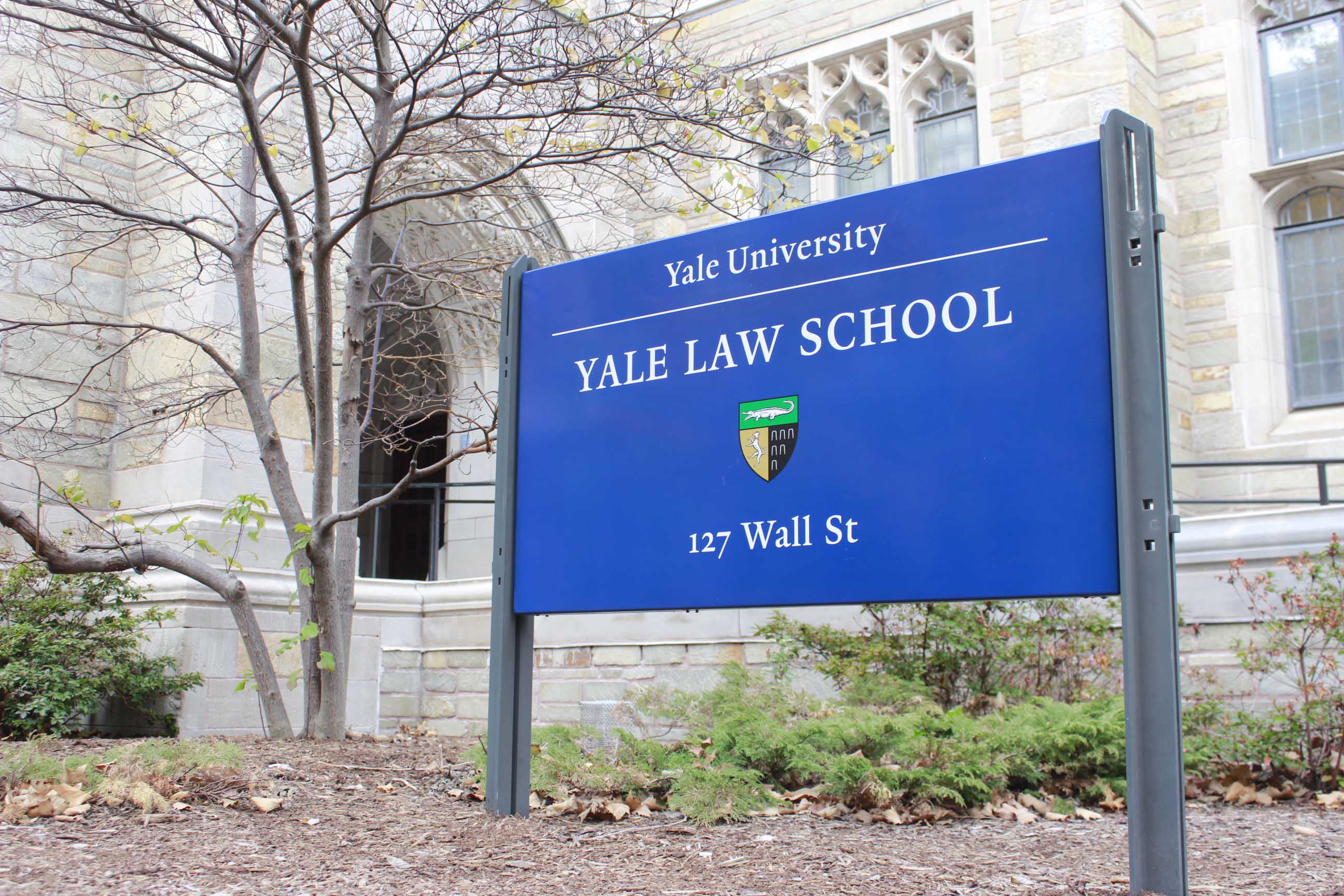
Seventeen Yale Law School professors and affiliates added their voices this month to a chorus of professors nationwide voicing opposition to Sen. Jeff Sessions’ (R-Ala.) nomination for the position of attorney general.
A collection of 1,424 law professors from 180 universities signed a Jan. 9 letter expressing dissatisfaction with the nomination. Among their reasons for concern, the authors specifically pointed out Sessions’ record on voter fraud, his support for a border wall, his doubts over anthropogenic climate change and his opposition to legislation promoting women’s and LGBTQ rights.
“I thought it was important, as a law professor, to stand up for the principle that our attorney general should have a proven record of commitment to equal justice under law,” said former Law School Dean Harold Koh, who signed the letter.
The letter asked Sen. Charles Grassley (R-Iowa) and Sen. Dianne Feinstein (D-Calif.) and the rest of the Senate Judiciary Committee, which is responsible for handling the confirmation hearing for the attorney general, to reject President-elect Donald Trump’s nomination.
The confirmation hearings for Sessions’ current nomination began on Jan. 10. In multiple rounds of questioning that day, the Senate Judiciary Committee asked about all aspects of Sessions’ record, including racist remarks he allegedly made that prevented him from earning approval 31 years ago.
The letter harkened back to a 1986 hearing before the Senate Judiciary Committee when a bipartisan vote rejected President Ronald Reagan’s nomination of Sessions for a federal judgeship. The vote of disapproval, which saw two Republican senators break party rank to deny Sessions a seat on the bench, appeared to hinge on several race-related comments Sessions allegedly made during his time as United States Attorney in his home state of Alabama.
Feinstein, who is the ranking Democratic member of the Senate Judiciary Committee, also specifically referenced the letter of opposition on the first day of the hearing in the Senate. She called on the law professors and several other groups of objectors to question Sessions’ willingness to fight for the rights of all Americans.
“The debate about [Sessions’] racial views has become somewhat less clear-cut for me, but that doesn’t change my opinion on having signed the letter,” said Josh Galperin, a clinical lecturer in both the Law School and the School of Forestry. “I am more convinced than ever that even if he is not a ‘classical racist,’ his views on race, the state of race relations in the country and how we should view address inequality are still ignorant of reality.”
While Law School professors interviewed all objected to Sessions serving as attorney general, their reasons were varied. Much of the variation in opinion arose over whether Sessions was unfit for any government role or just attorney general in particular.
The attorney general, the top federal prosecutor in the country, is charged with upholding and defending the law of the land. Lawrence Fox, a visiting lecturer at the Law School and one of the letter’s signatories, made it clear that the attorney general exists on a different plane than pure policy-setting roles.
“This is the senior legal officer of the entire country,” Fox said. “It is a different role from the role that other cabinet officers play. This job is much closer to being a judge than to being an advocate. The people who do the prosecution function at every level and are ministers of justices.”
Additionally, Fox highlighted that his disapproval of Sessions lay not in political concern, but rather in the fact that someone with such a “tarnished record” could not ethically and correctly carry out the role. Fox was among a smaller cohort of professors — and the only professor affiliated with Yale — that signed another open letter specifically addressing Sessions’ ethical shortcomings and record of prosecutorial misconduct.
Other Yale professors said Sessions would be a poor pick for any department or cabinet spot because of his political views. Mindy Roseman, the director of Yale’s Gruber Program for Global Justice and Women’s Rights, objected to Sessions’ bearing and politics, citing his treatment of women’s rights issues as particularly troubling.
“I do think that the opposition to him is very much about positions he has taken, both the things he has said and done, and they way they relate to the responsibility of the attorney general,” said Jim Silk, a signatory and clinical law professor who specializes in international human rights. “But for me there is a little more to it than that: I worry that there is already a gradual normalization of results and impact of this election and I think that is very dangerous.”
The letter was signed by faculty members at universities in 49 states.







